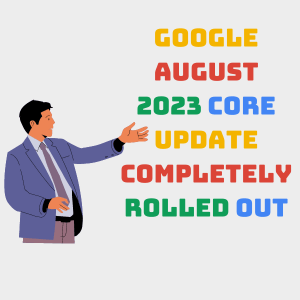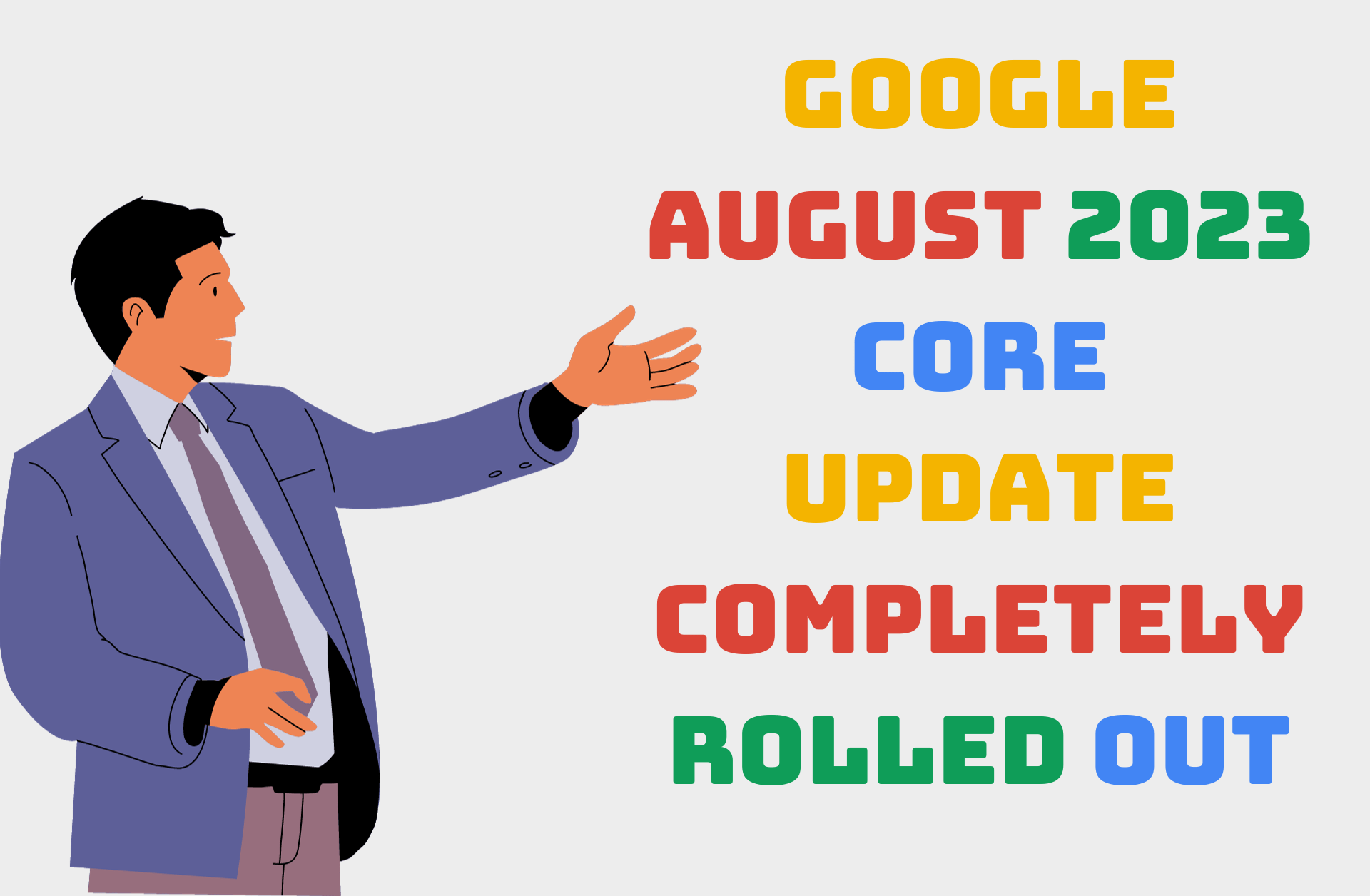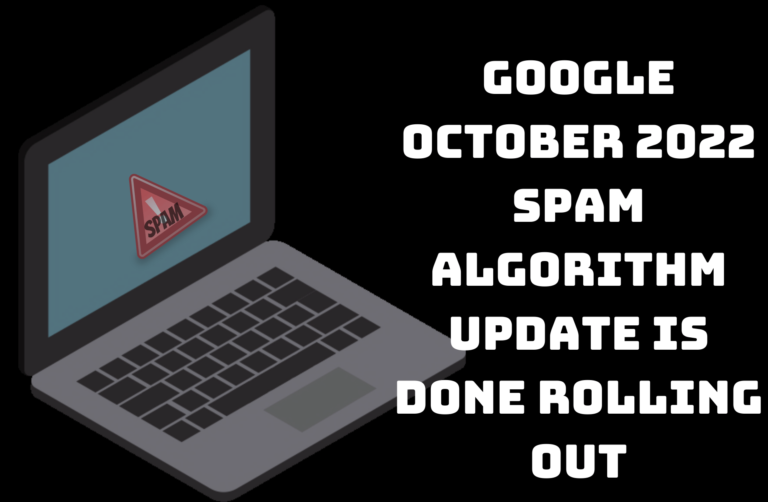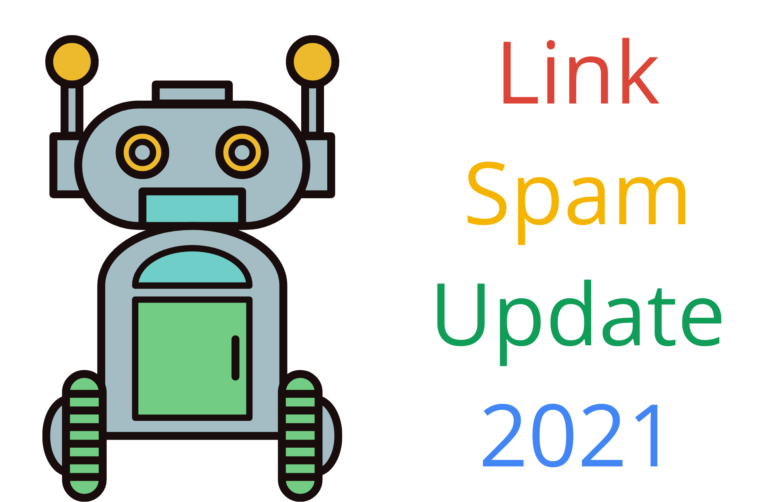Google Search Central has officially confirmed the completion of the core update for August 2023.
This update started on August 22, 2023, and finished rolling out on September 7, 2023, taking a total of 16 days.
Note: This was the second core update of 2023.
Table of Contents
The Official Announcement on Google August 2023 Core Update
Google announced completion of the core algorithm update on its Twitter handle as well as on Google Search Status Dashboard.
The rollout is now complete as of September 7, 2023.
— Google Search Central (@googlesearchc) September 7, 2023
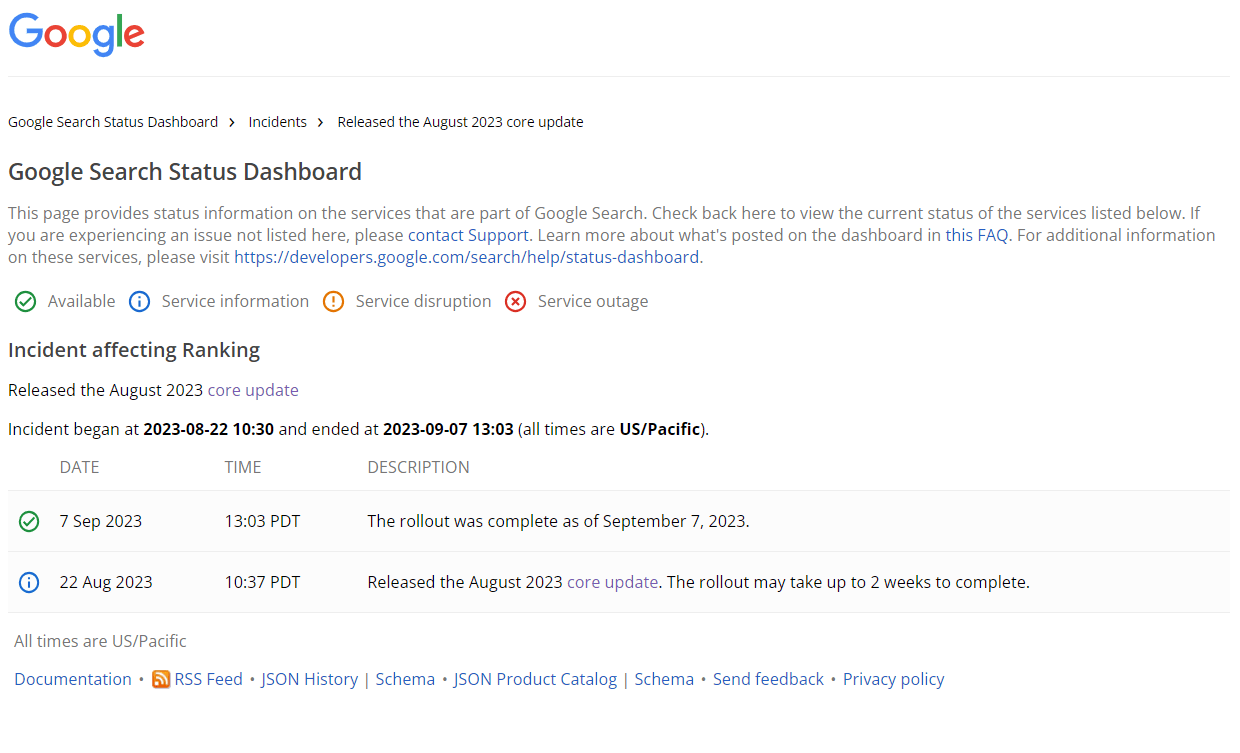
Quick Facts On Google August 2023 Core Update
- Name: Google August 2023 Core Update
- Date and time of launch: August 22, 2023 around 1:30 pm ET
- Duration: It may two weeks to complete as duration was mentioned in the announcement.
- Targets: It will target all types of websites and pages. (Content, Website, Blogs, and Images)
- Penalty: It is not a penalty but it promotes good quality webpages
- Global Update: This a global update which means it will affect all languages and regions
- Recovery: If you are hit by this update, then follow Google’s core update advice.
Strategies for Restoring a Website Impacted by Google Core Algorithm Updates
When a core update impacts a website, it often signifies that websites ranking higher may offer superior content quality and relevance.
Conversely, websites with lower rankings but highly relevant to user queries might see an improvement in their rankings, causing other sites to drop in the rankings. In many cases, this shift in rankings is a primary factor contributing to a decrease in organic SEO traffic.
Follow the below mentioned strategies when you got hit by a core update:
1. Adhere to Google’s Guidance:
Follow Google’s advice and guidelines to ensure your website aligns with their search quality standards.
2. Content Quality Assessment:
Continuously evaluate the quality of your content to ensure it meets the highest standards of relevance and usefulness.
3. Regular Content Updates:
Keep your website’s content up-to-date by regularly refreshing and revising it to reflect current information and trends.
4. Focus on Users:
- Prioritize the needs and expectations of your users when creating and optimizing your website’s content and features.
- Don’t create content just for search engines.
5. Eliminate Thin Content:
- Ensure that your website does not contain thin or low-value content by removing or by improving the pages that lack substance and relevance.
- Concentrate on producing comprehensive and valuable content that effectively addresses the questions and needs of your users.
6. Prioritize Quality over Quantity:
Focus on creating high-quality content that offers genuine value to your audience, rather than producing a large volume of shallow or redundant material.
7. Leverage Social Signals:
Utilize social media platforms to promote your content and engage with your audience, as social signals can influence your website’s visibility in search results.
